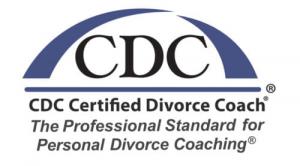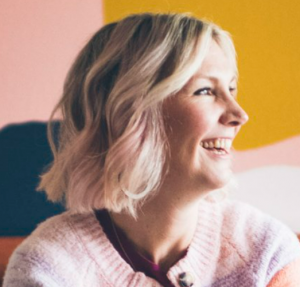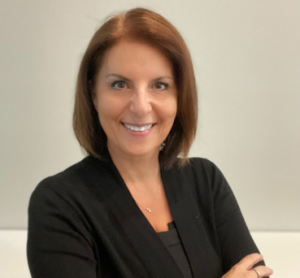Divorce Coaching Can Help Create an Amicable, Holistic Divorce Experience
CDC Certified Divorce Coach® Launches the CDC Amicable Divorce Coach® Specialty Certification for its Graduates
Clients can show up aligned with their values - holistic and amicable - or be adrift in fight-or-flight reactivity.”
UNITED STATES, July 25, 2024 /EINPresswire.com/ -- Divorce sparks visions of adversaries ending a marriage. But what if couples could think outside the box to find possibilities? What if that relationship could evolve naturally into something different, supportive, and friendly? — Molly Wilder
Divorce Coach Molly Wilder and her ex-husband figured it out. After 28 years, it was time to explore divorce, yet they and their seven children were heavily invested as a family. In hindsight, Wilder realizes she reframed her perspectives, thanks in part to insights she gleaned while watching her children mature.
“I watched our kids grow up, move into relationships, yet still invest themselves in family,” she says. “They had their own separate lives, but they were still part of the family, still came for dinners. Our relationships changed and grew while remaining strong and grounded.”
That helped Wilder envision the post-divorce relationships that seemed right for everyone. She realized it was OK to explore possibilities and stretch her thinking about divorce. The way one thinks about divorce has consequences, she believes, and she wanted to find a way to think about it that could benefit everyone.
Her reframe worked. Today, Wilder shares her experience as one of the co-creators and instructors of the CDC Certified Divorce Coach’s Amicable and Holistic Divorce Coach® training. The eight-week program offers a specialized add-on certificate for CDC’s Accredited Divorce Coaches™. The narrative around divorce is painful, yet positive stories like Wilder’s astound coaching students. When they hear what’s possible, their thinking opens.
The relationship parameters for a couple to thrive apart are simple. Ideally both – but at least one of the two – must want it enough to ride through the early “storming” stages of whatever new kind of relationship is possible.
“My ex-husband and I are proud of what we’ve done,” Wilder says, “and we have a strong relationship outside marriage. Our commitment to amicably divorce opened many ways to have a close relationship as friends.”
And there it is: the heart of divorce coaching – helping clients find a better way to end a marriage. For the past 14 years, CDC certified divorce coaches have helped clients around the world work through anger and a host of other feelings to approach divorce in the best ways possible. That basic training is embedded in the core teaching of the CDC’s accredited training program.
Now, the amicable and holistic training offers a richly crafted program – a master practitioner deep dive. Experienced CDC coaches bring relevant personal examples to the learning.
“Many people are told that if the other person doesn’t go along with the idea of an amicable divorce, it’s impossible to do it by yourself. Well, we have collected real-life examples – proof that is not so,” says Pegotty Cooper, co-founder of the CDC Divorce Coach with her husband, Randy Cooper.
As Cooper explains it, an amicable divorce is neither a destination nor an outcome. Instead, it’s more of a mindset: taking the high road and staying true to one’s best self, paying attention to children’s needs, and being a role model for dealing with disappointments and loss. In the end, it’s all about advocating for what is best for the whole family.
Helena Wolfand, another class instructor, agrees. She has a passion for helping clients do just that. Like Wilder, she stresses that an amicable divorce – taking the high road – is a choice, not an accident, and one that is made every single day, every single minute.
“It’s always a choice. We make it with our spouses, partners, friends, children – anyone we’re in relationship with,” Wolfand says. “You can separate amicably, remain friends, and still help one another. Why throw away a long-term relationship just because you couldn’t make it as a couple?’”
That kind of thinking and frank conversations make the Amicable/Holistic program intimate and yet expansive. For eight weeks, participants devote two hours weekly to an online experience with like-minded divorce coaches. They hear success stories, explore the principles of amicable and holistic divorce, enjoy thought-provoking discussions, and learn techniques and skills to help clients create better paths through divorce.
Graduates explore all aspects of the amicable process, including conflict scenarios that range from one end of the spectrum to the other as well as the mindsets that drive clients or conflict. They also discover and practice coaching tools and frameworks to support their client’s outcomes as well as the legal process. Wilder’s passion is helping clients and coaches become more holistic in the process.
“Clients can show up aligned with their values – holistic and amicable – or be adrift in fight-or-flight reactivity,” she says. “We teach 10 holistic practice techniques to help clients learn to de-escalate reactivity and make values-based decisions. When we help them learn to self-navigate from reactivity to a regulated emotional state, they move into a place of “what’s possible.” In other words, they support themselves and show up with their values front and center.
Amicable and Holistic Divorce coaches help clients
• focus on what’s most important;
• support their children so they can love and respect both parents;
• advocate for themselves and their children;
• deal well with any resistance or conflict they encounter; and
• build a professional team to support cooperation instead of adversarial approaches.
Divorce Coaches thus help build and reinforce “guardrails” on the high road, which helps clients ensure any occasional detour is temporary.
“Ultimately,” Cooper says, “if a client wants an amicable, holistic divorce – even if the spouse may not be on board – our coaches help them keep their focus on what’s most important and set intentions for how to best manage challenging situations in a way that maintains dignity and higher self-esteem throughout the process.”
Wilder and Wolfand are certainly examples of how divorce can be holistic, and both of their families healed through divorce. “The world sees divorce as a broken relationship, a broken family,” Wilder says. “But with amicable and holistic divorce coaching, it can be reparative and healing.”
Randall R Cooper
Divorce Coaching, Inc.
+1 813-455-1134
cdc-registrar@certifieddivorcecoach.com
Legal Disclaimer:
EIN Presswire provides this news content "as is" without warranty of any kind. We do not accept any responsibility or liability for the accuracy, content, images, videos, licenses, completeness, legality, or reliability of the information contained in this article. If you have any complaints or copyright issues related to this article, kindly contact the author above.



